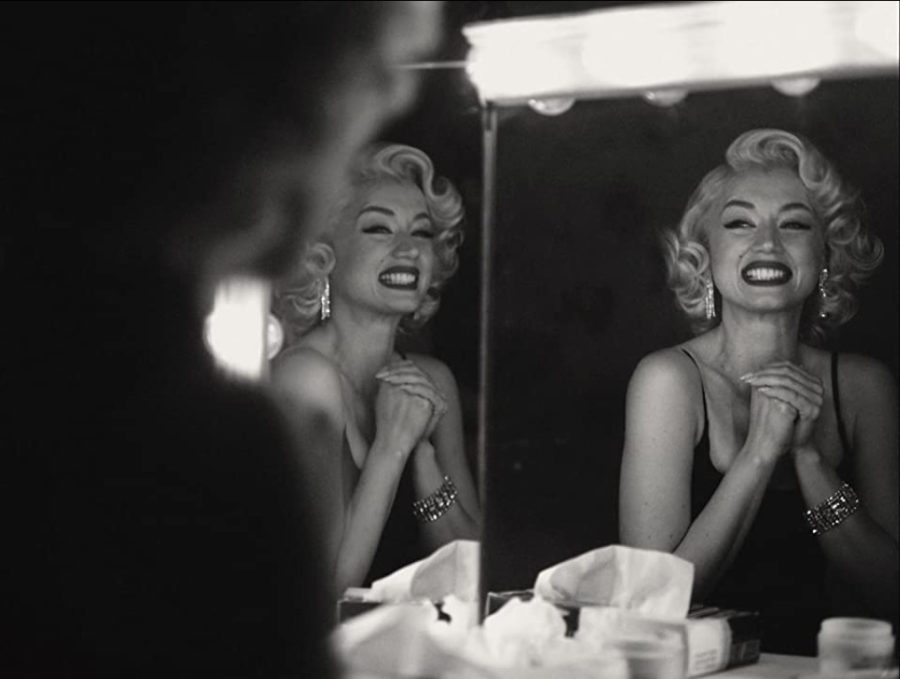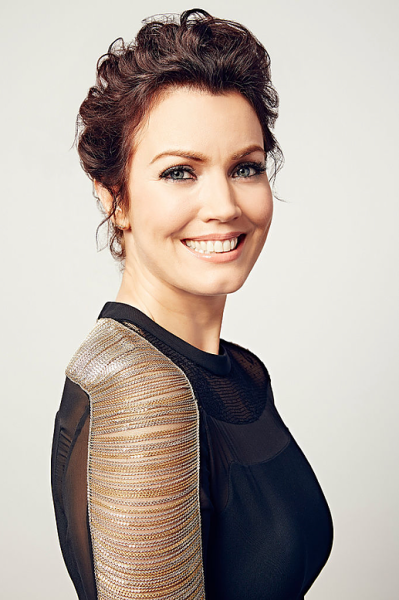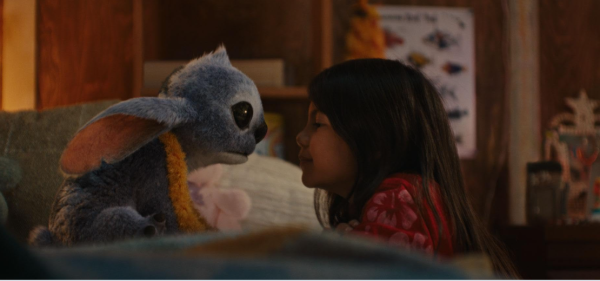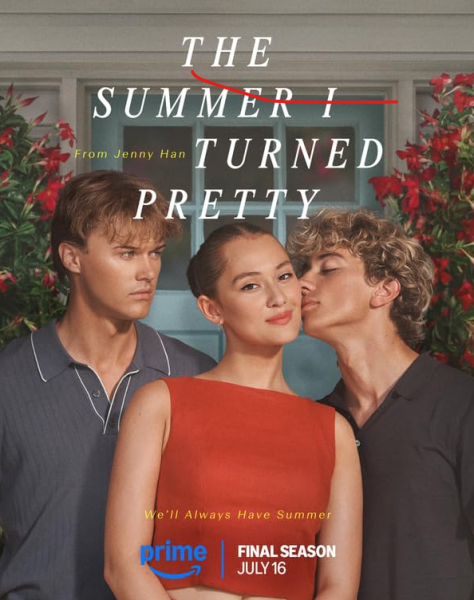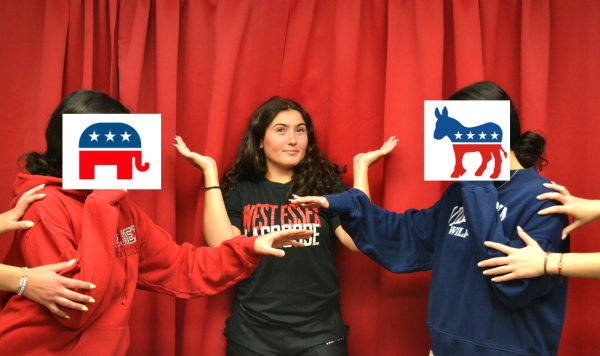OPINION: Hollywood tells hypocritical lies in biopic genre
We’ve all seen it time and time again, in recent years: Whenever a novel, film, television series or some other media outlet creates content about an iconic figure, it often advertises the piece as telling their story, yet it is difficult to tell someone’s story when it comprises their story and fictionalizes events taken out of context to fit a certain audience appeal.
“It’s always a fabricated story meant to pull on our heartstrings and evoke an emotional reaction,” film review teacher Mr. Myerson said. “Life is not so clear cut and simple. Real life doesn’t lend itself well to Hollywood storytelling. We don’t have endings like that, but in these movies, things will still be tied up in a neat bow or dramatically crash and burn.”
A recent film that’s a perfect example of this is Andrew Dominik’s “Blonde.” It was evident from the trailers, NC-17 rating, and marketing scheme leading up to the release that this movie would be an exploitative disgrace to Marilyn Monroe’s name. The extent of this was unimaginable, though, as no one could have anticipated this exploitation to be was as bad as it was, having a near unforgivable three hour runtime that consisted entirely of graphic depictions of abuse, assault, sexual violence and gratuitous nudity. Though maybe not as severe, similar elements of dramatization can be found in “Spencer” (2021), “Judy” (2019) and “Bohemian Rhapsody” (2017). Representing very dramatized, fictitious perspectives of these people’s struggles and maximizing the effects such as their behavior for the screen demonstrates a true disconnection from the subject material. If these films really wanted to tell these people’s story, they wouldn’t define them by the hardships they endured, but by everything that made them who they were. These filmmakers were persuaded to skew the story because more heavy, eye-catching subject material sells better.
On the contrary to this trope, the recent release of Baz Luhrmann’s “Elvis” saw an increase of Elvis Presley fans on social media and in younger generations. The film brought Elvis’ talent to a new generation, ensuring that his legacy will live on. Though Elvis was undeniably talented, his character became more romanticized than he should be. The film displayed his talents, acknowledged his demons, but failed to mention that Priscilla Beaulieu was only 14 and that Presley was 24 when their relationship began. The film also failed to address his predatory tendencies with girls as young as 15 and 16 years old. In addition to disrespectful portrayals of people with difficult lives such as Marilyn Monroe, Judy Garland, and Diana Spencer, we put people like Elvis Presley on a pedestal and keep quiet about their wrongdoings.
Despite a lot of insincerity and tone deafness on Hollywood’s part, some argue that there’s more complexity to the fumbled execution of the biographical genre rather than the cash grabbing shallowness of these two tropes. It could sometimes be as plain and simple as an attempt to convey a potentially interesting account about someone well-known, and showcasing the talents of an age-old icon to a a new audience.
“I just don’t think there is so much as a story being told rather than someone’s life just being explained,” senior and co-president of the film club Priya Shah said. “It always seems to be clear that there is a strong directorial intent and very strong artistic perspective. It’s just that most major movies, ones that are expected to be marketed to bigger audiences, want to keep a general appeal so they don’t want to promote one artistic view before the release of the movie, so they keep it at ‘I’m going to tell you about this person’s life.’ But then, once you actually watch it, the storytelling element becomes much more prominent and you finally get what they’re trying to tell you.”
It is certainly no secret that not every biographical film is ill-intend
ed or executed because at the end of the day, they’re films, not documentaries.
“These films aren’t always celebrations,” Mr. Myerson said. “They’re better when they’re not, when it’s just ‘here’s this amazing person. Let’s put them on a pedestal, make them into an idol and completely erase all their flaws.’ I hate that. It’s not interesting to me.”
However, in opposition to exceptions such as the 1990 mob classic “GoodFellas,” “Schindler’s List” (1993), “Raging Bull” (1980), and many more, it seems that modern biographies are the ones that have struggled. This phenomenon wasn’t as bad during the release time of these classics because media was much more filtered and scarce, and there wasn’t any need for lies and gratuitous content to captivate an audience.
“They didn’t do it to the extremes they do now,” Shah said. This is because the media landscape is trying to adapt to a more restless, desensitized audience in all the worst ways.
“General biopics are glorifying heavy topics and pushing the extreme to get profit,” Shah said. “I think it’s destroying our sense of morality and what we’re supposed to talk about.”
Hollywood claims to want to tell these peoples stories and show the dark side of the industry or of fame in general. It appears to be a chance for certain groups or people to acknowledge their history and previous faults, but it’s usually done in an exploitative manner or a romanticized one, just like the treatment of these people when they were alive. It forces us to ask the question: have we really evolved as much as we’d like to believe?
Media outlets need to be more conscious of minimizing harm as well as being more sincere in the kind of content they create, just as we, as the general public, also need to exhibit more maturity with fleeting trending interests that result in disturbing content that many of us actually want to see.
